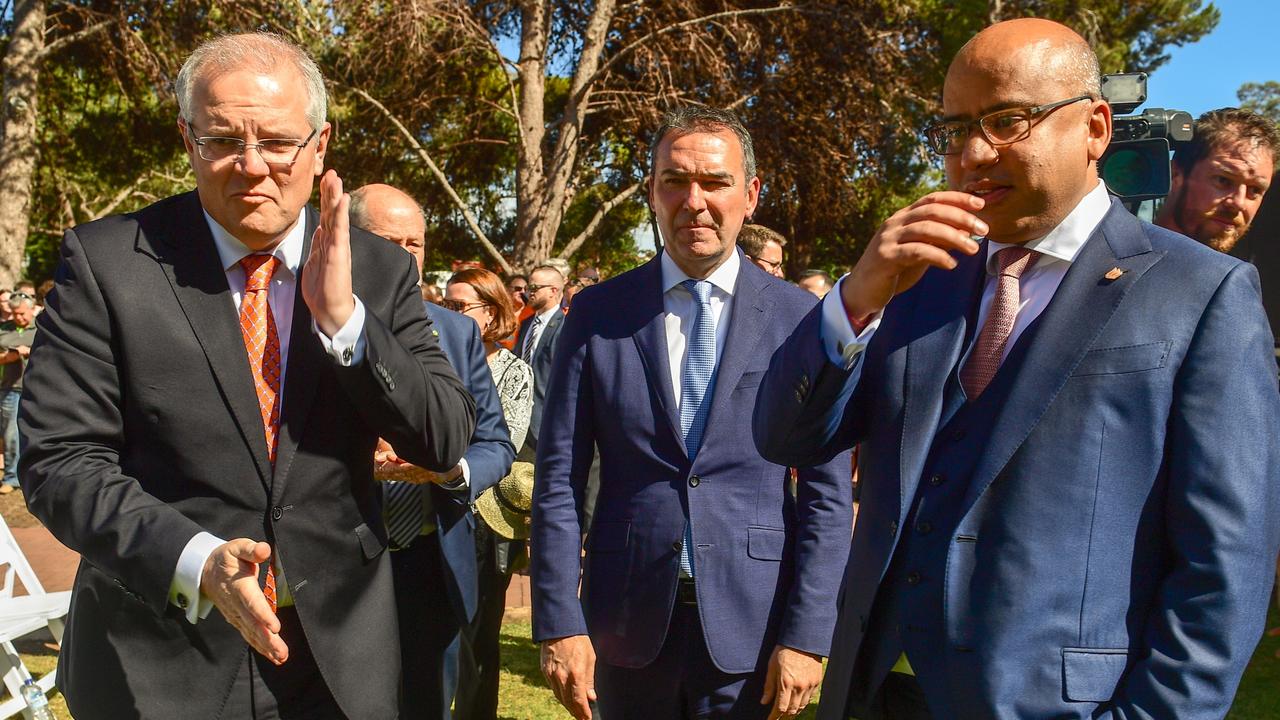Graham Cornes reflects on self-help tips that tap into the root of motivation and John Cahill’s leadership style
Toward the end of Graham Cornes’ career a famed motivational speaker spoke to his beloved Glenelg Football Club and the unforgettable experience could still help today’s new-age coaches.
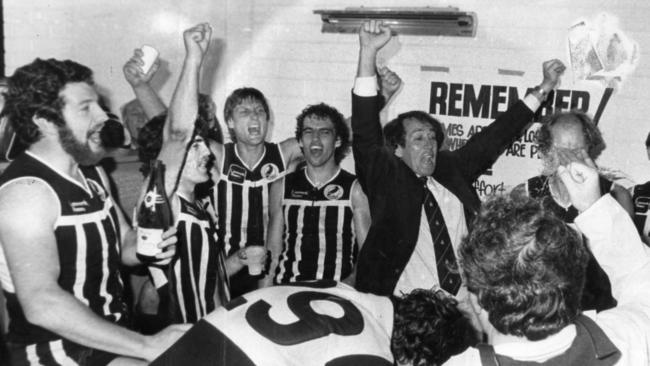
Opinion
Don't miss out on the headlines from Opinion. Followed categories will be added to My News.
IT was towards the end of my playing career that the famed American motivational speaker, author and high-performance consultant, Dr Denis Waitley, spoke to our football team.
I have no idea who brought him to Adelaide or who invited him to the Glenelg Football Club, but it was an unforgettable experience (even though Peter Carey says he can’t remember).
Football clubs had been dabbling in sports psychology, but at the time it was an inexact science and very spasmodicly applied. Dr Waitley’s book, The Pyschology of Winning, tapped into roots of motivation and self-help.
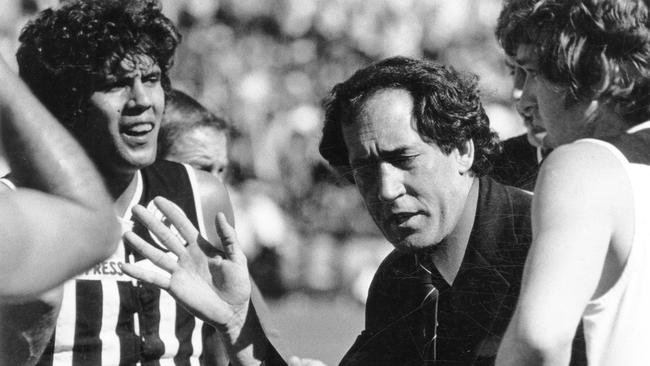
Forty-five years after publication it has sold over 100 million copies. Like that other self-help classic, How to Win Friends and Influence People, by Dale Carnegie, it wasn’t written specifically for sportspeople but some of the principles apply.
It is all about attitude. Winning is a mindset. A compelling charismatic speaker, Dr Waitley told us tales of overcoming adversity and introduced us to the concept of visualisation. He spoke about positive self-esteem and positive self-expectancy. Then he was gone. Like all charismatic speakers, he left us wanting more.
Today, the sports psychologist is an integral part of an AFL team’s coaching staff. Some are employed full-time, others are available at any time to the players. At the Adelaide Football Club, the Performance Psychologist is Rosie Stanimirovic. She started at the club late last year having worked in a couple of Olympic sports and had previously been at Greater Western Sydney.
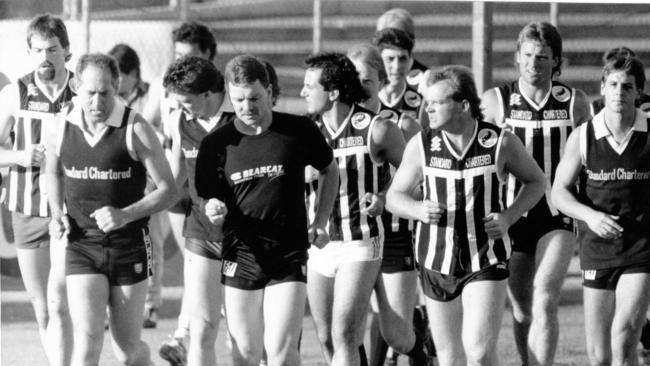
I ran into a couple of Crows players at the Glenelg Golf Club on Thursday who spoke glowingly of her impact - although it hadn’t helped their golf! However, the message from the club is that Ms Stanimirovic has been well received and is getting good feedback from both the male and female players.
Port Adelaide does not have a full-time sports psychologist on its coaching staff, which is perhaps a reflection of the pressure of working within the soft salary-cap. However, David Steventon, a performance mindset consultant is available to the players whenever required.
It wasn’t that long ago that the coach was the only source of motivation for the players. In the great Australian tradition of taking the easy way out, players had to be driven, not led. Effort was demanded and in most cases the motivation was borne out of fear.
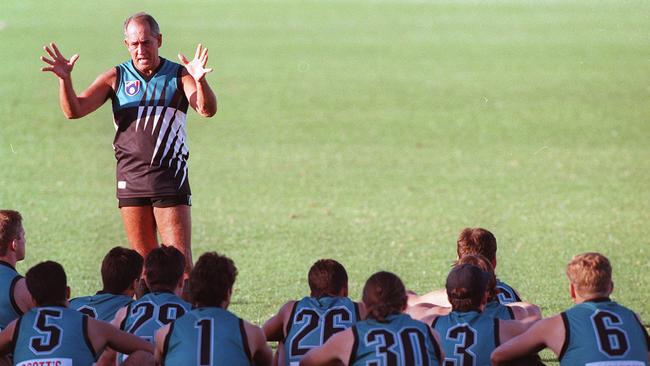
The coach was a demanding, threatening presence. Some of the most successful coaches who have been elevated to Legend status in the Australian Football Hall of Fame are those that struck fear into the hearts of their players.
Think Norm Smith, Ron Barassi, Malcolm Blight, John Kennedy etc. Jack Oatey was more moderate – more of an educator – although those who sat alongside him on the coach’s bench say he could rise to surprising levels of apoplexy.
John Cahill is an interesting study in sports psychology. Readers of this column know how often he is referenced on this page, and the high esteem in which he is held. It is for good reason.
He is this state’s most successful football coach and he was a pretty good player as well. A four-time best and fairest winner and four-time premiership player at that powerful club is testament to that.
However, it is his record of coaching his team to 10 premiership victories from 11 grand finals that elevates him above the rest of the pack. He may have studied from Dr Denis Waitley’s playbook, especially the points of positive self-esteem and positive self-expectancy because he made his players stand 10-foot tall and convinced them they were unbeatable.
Former Port champion and captain Tim Giniver laughs when he recounts the team meetings when Cahill convinced him he would rather have him in his team than other great rovers like John Platten or Mark Naley!
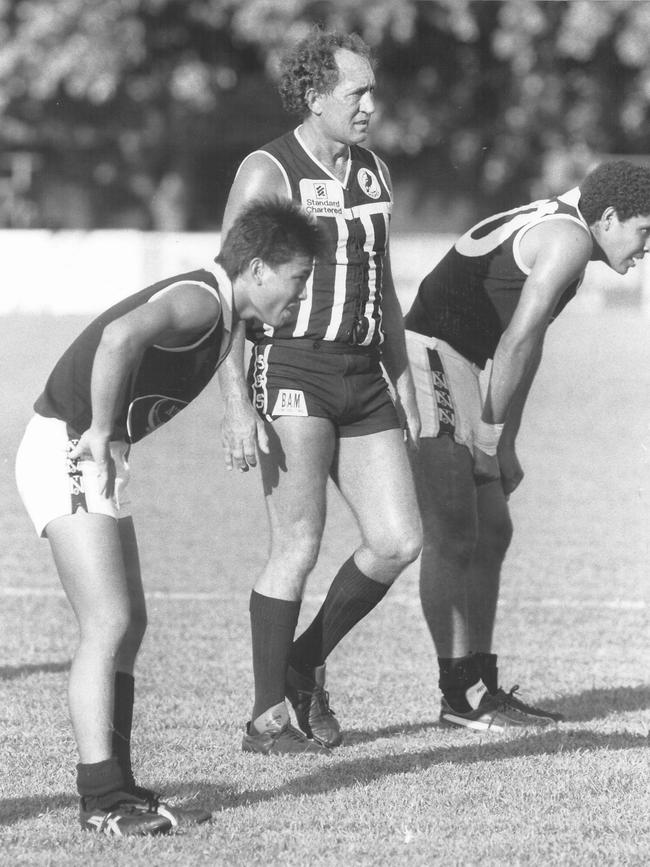
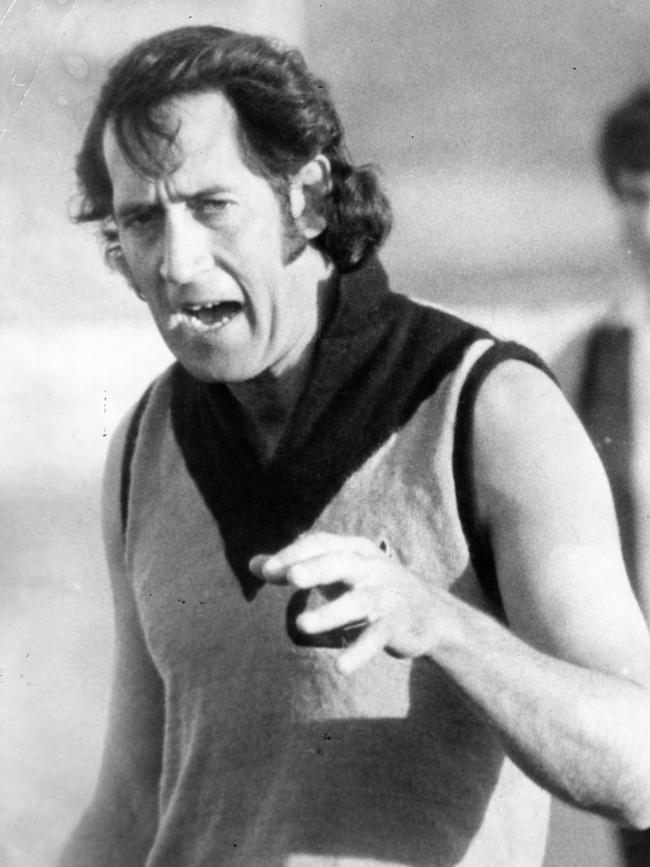
It may have been hyperbole but his players believed it. Optimism and complimentary praise, even if they are guileful and over-effusive will often trump realism. There is a place for pragmatism but it is vulnerable against enthusiastic optimism.
It’s hard to determine the exact date when Australian football became a full-time profession but it was in the latter few years of the 20th century. With that transition came a change in the generations of teenagers and the youth who were no longer subservient to autocratic, draconian parents, bosses, teachers or coaches.
Today, daring to tell the honest truth to under-performing players or employees will see you cancelled, almost summarily. David Noble’s exit from North Melbourne is a recent example of that. (And don’t mention their weight, either).
No, the new-age coach is a different breed. When it comes to coaching the modern player, the key words are: relationships, inclusiveness, mindfulness, empathy, compassion, connection and cohesion. Additionally, there is a battery of assistants and support staff to accommodate the sensitivities of the players. One is tempted to use the word mollycoddle but someone might get offended.
The latest, trendiest book on lifechanging self-help and motivation is Atomic Habits by James Clear, who graduated with a degree in biomechanics from Denison University in Ohio. Clear had been a champion college baseball player who had recovered from an horrific injury when struck in the head with a baseball bat.
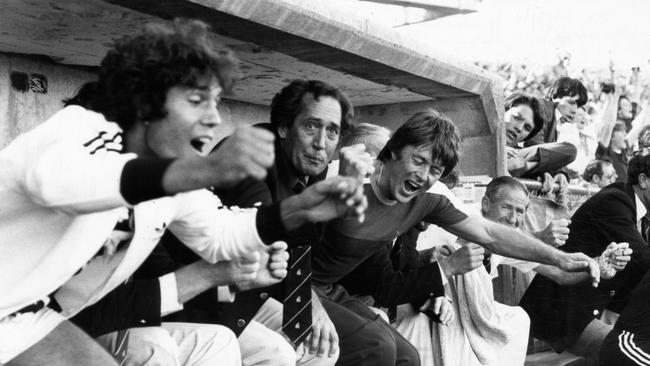
He started his professional working life as a high-performance coach for athletes and business executives. He began to put his philosophies into print about 10 years ago, a move which has been an outstanding success, as Atomic Habits was officially the number one New York Times best-seller of 2023.
The book is best described as provocative rather than inspirational. It will provoke you to change bad habits. For an athlete or a footballer, Clear writes in terms of small changes and how if they compound, can make an enormous improvement.
The word “Atomic” in the title suggests the content might be large and explosive but it is in the context of small being powerful.
Clear is not overly modest but he writes with common sense and inspires achievable outcomes. The most challenging concept is that he devalues the importance of setting goals. For someone who had lived by the mantras of goal-setting and high expectations it is indeed a provocative concept. It’s not the goal-setting that is important: “Everyone sets goals”, he says. It’s the processes or the systems that you put in place to achieve those results that are most important.
“If you want better results, forget about setting goals and focus on your system instead.” Still, I would argue that the goal has to come first and is therefore most important, but he’s sold the 15 million copies of his book.
Whether you are a footballer or someone struggling to get off the couch, this is a self-help book that can provoke you to action. Starting modestly, making life-changes easy and expecting only small, but constant, improvements appeal to those who struggle otherwise to fulfil their New Year’s resolutions.
It’s unlikely that Matthew Nicks or Ken Hinkley will call on James Clear or Denis Waitley for that added boost of inspiration. After all, the coaches have their own high-performance consultants in place.
The majority of elite performance is in the mind, so it is absolutely certain that they will demand improvement. And that improvement can only come with a change or an adjustment to their established habits. Read the books.





